Iranian Officials Admit Allegiance to Supreme Leader a Key Election Criterion
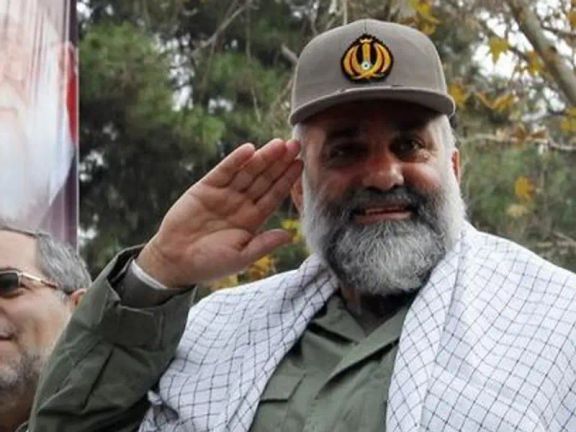
In the lead-up to Iran's snap presidential elections, high-ranking officials have admitted that candidates must be aligned with the Supreme Leader, Ali Khamenei.

In the lead-up to Iran's snap presidential elections, high-ranking officials have admitted that candidates must be aligned with the Supreme Leader, Ali Khamenei.
"In the upcoming elections, we need to see who is on the path of the [Supreme] Leader and does not deviate from him; we must base our choice on him," said Mohammad Reza Naghdi, the coordinating deputy of the Revolutionary Guards, whose role is closely tied to Khamenei and the country's leadership.
Abdollah Haji-Sadeghi, Khamenei's representative in the Revolutionary Guards, also stated that devotion to the Supreme Leader should be the deciding factor in the elections, which come on the back of the sudden death of Ebrahim Raisi last month in a helicopter crash. Candidates have to be approved by the Guardian Council, which ultimately carries out the wishes of Khamenei.
"Let’s be mindful that devotion to the Supreme Leader should be the criterion and we should choose a servant for the leadership, not a burden," Haji-Sadeghi said.
Following the unexpected death of President Ebrahim Raisi in a helicopter crash on May 19, 80 candidates have registered to contend for his position. The Guardian Council is set to announce the approved candidates after a week, with the election scheduled for June 28.
Multiple reformist candidates have already been denied applications to register as the process continues to channel the wishes of the Supreme Leader over the wishes of the people. Like previous presidential elections, turnout is expected to be as low as single figures.
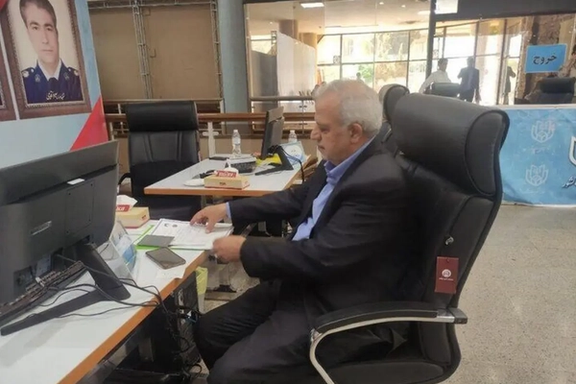
The brother of Iran's late president has been denied application in the upcoming elections after Ebrahim Raisi's sudden death in a helicopter crash last month.
Ali Rais al-Sadati attempted to register on the last day of applications for the June 28 snap elections but his request was denied for failing to provide “the necessary requirements" according to reports on state media.
The authorities report that 80 candidates registered during the five-day registration period. Some question the high number and speculate about who will ultimately be accepted into the race by the Guardian Council acting on behalf of the Supreme Leader.
According to an Interior Ministry official, the Guardian Council will announce the names of qualified candidates on June 11 with the number of qualified candidates expected to range from as little as four to over 10.
Candidates who have been approved will have two weeks to campaign before the election. If no candidate receives more than 50 percent of the votes, a run-off election will be held on July 5.
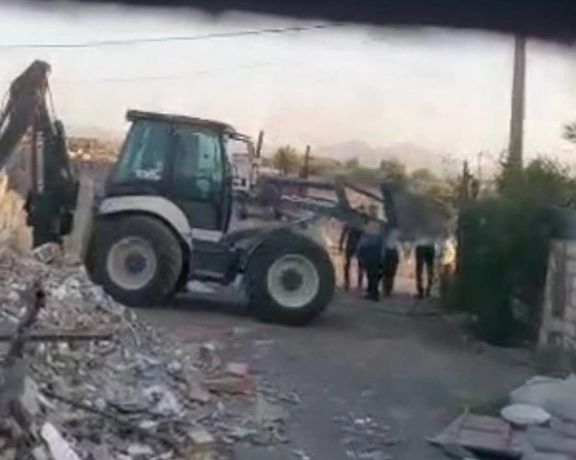
Security forces have destroyed the last remaining Sunni prayer hall in Bam, Kerman province, according to rights group Haalvsh, amid worsening oppression of minorities by Iran's Shia government.
On Monday, Haalvsh published a video showing the hall's ruins and reported that the prayer hall was destroyed at dawn on Saturday by the military along with municipality officials.
“This was a shed constructed to serve as a prayer hall for Sunni citizens because they did not have permission to construct a mosque in the city,” the report said, Sunnis not offered the same privileges as the ruling Shia Muslims in Iran. “In order not to offend, no loudspeakers were used during prayer time.”
Sunnis constitute at least 10 percent of Iran's 88 million population, the majority of them economically and politically disenfranchised and concentrated in border regions stretching from Sistan-Baluchestan in the southeast to Kurdistan in the northwest.
Iran's leading Sunni cleric, Mowlavi Abdolhamid, an outspoken critic of the Iranian government, has frequently accused the government of persecuting religious minorities which also include Baha'i and Zoroastrian communities.
Since September 2022, Iran's southeastern Sunni region has been under strict security control as protests persist after the day now known as Bloody Friday. Security forces opened fire on protesters in Zahedan in Sistan-Baluchestan, killing nearly 90 people, including women and children. Since then, local Sunnis have protested every week after Friday prayers calling for justice as the government fails to be held to account.
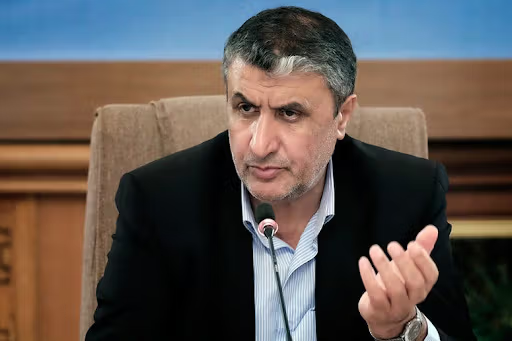
Iran’s nuclear chief says the country is adhering to the Nuclear Non-Proliferation Treaty (NPT) agreements, but is “in the process of reducing its nuclear obligations from the 2015 agreement."
Mohammad Eslami maintained Tehran is still following the NPT Safeguards Agreement and is only reducing the obligations it had under the 2015 nuclear deal, known as the Joint Comprehensive Plan of Action (JCPOA).
The comments come as Britain, France, and Germany submitted a resolution to the United Nations nuclear watchdog’s Board of Governors Monday censuring Iran. According to AFP, European diplomats cited Iran's lack of cooperation with the agency, believing Iran is developing nuclear weapons.
Before the resolution, Iranian officials cautioned European powers against applying pressure on Iran concerning its nuclear program. Ali Shamkhani, a senior advisor to Supreme Leader Ali Khamenei and the reported head of Iran's nuclear negotiations, asserted on Saturday that if European countries proceed with a resolution criticizing Iran's nuclear activities, Iran would respond in a "serious and effective manner."
The E3 maintains that Iran has signed and ratified the NPT Safeguards Agreement but has not adhered to its legally binding obligations.
IAEA Chief Rafael Grossi acknowledged on Monday that the agency has lost continuity of knowledge regarding the production of centrifuges, rotors and bellows, heavy water, and uranium as Iran continues to expand its nuclear program.
In response to a question by Iran International’s Ahmad Samadi about the censure resolution by the European countries, Grossi stated that the member countries must express their opinions on the matter and that the Agency is only required to comply with the resolution if it is approved.
In 2018, then-US President Donald Trump withdrew from the 2015 nuclear deal, known as the Joint Comprehensive Plan of Action (JCPOA), arguing that the agreement did not sufficiently prevent Tehran from acquiring a nuclear weapon. Consequently, sanctions reliefs were revoked.
In 2020, the Iranian parliament suspended UN inspections of Iran's nuclear facilities and mandated the government to increase uranium enrichment if European signatories to the 2015 nuclear deal did not lift oil and banking sanctions.
Despite Iran's lack of cooperation with the IAEA on multiple issues since 2020, friction points between Tehran and the agency have recently accumulated.
The Iranian government has deactivated surveillance devices, denied senior inspectors access, and refused to disclose the location of new nuclear facilities, despite insisting that its uranium enrichment is solely for civilian purposes and that it does not intend to develop nuclear weapons.
According to an IAEA benchmark, Iran is enriching uranium to 60% purity, close to the 90% required for weapons-grade material. It has accumulated enough material to be further enriched to produce three nuclear bombs.
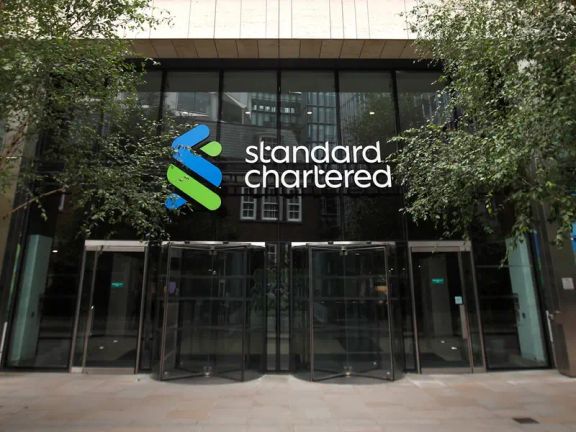
British bank Standard Chartered is accused of facilitating billions of dollars in transactions for funders of terrorist groups such as Hamas and al-Qaeda, according to new US court documents.
Former Standard Chartered executive turned whistleblower Julian Knight claims, according to the International Consortium of Investigative Journalists, that US authorities either overlooked or concealed "damning evidence" of the bank's involvement in "billions of dollars in banking transactions for Iran, numerous international terror groups, and front companies for those groups."
The court documents filed in New York by Knight allege that from 2008 to 2013, Standard Chartered conducted thousands of transactions worth over $100 billion, violating sanctions against Iran.
SCB has admitted to breaching sanctions against Iran and other countries twice, once in 2012 and again in 2019, reportedly paying fines totaling over $1.7 billion. However, according to the BBC, it has not admitted to conducting transactions for “terrorist” organizations.
In 2012, the British bank – one of the country’s oldest – avoided prosecution for money laundering after then-Chancellor George Osborne reportedly intervened secretly. Three months later, the US Department of Justice chose not to prosecute the bank. It is unclear if the British government was aware of these actions then.
Knight contends that the transactions conducted by SCB far exceeded those admitted to during the settlement of the criminal case in 2012, occurring well after the bank claimed to have ceased all Iranian operations in 2007.
According to the BBC, an independent expert identified $9.6bn of foreign exchange transactions with individuals and companies designated by the US government as funding “terror groups”, including Hezbollah, Hamas, al-Qaeda, and the Taliban.
The confidential bank spreadsheets that showed the transactions were handed to US authorities in 2012 by Knight and another whistleblower, who both claim that the US government agencies made false statements to a court to have their claim for a whistleblower’s reward dismissed.
Knight has asked the US Federal Court in New York to reinstate his claims, saying that the government had committed a “colossal fraud” on the court by denying he had provided “damning evidence” that the bank facilitated many billions of dollars in banking transactions for Iran.
The whistleblower claims that the US government either falsely stated that it conducted a thorough investigation into his claims or that it knew about the transactions he reported and lied to hide them. Knight believes the government's statements indicate that they were aware of the transactions and chose to conceal this information.
In its report, the BBC said US authorities investigating the bank successfully applied to have their case dismissed in 2019. US authorities argued the whistleblower’s allegations “did not lead to the discovery of any new … violations” and the court dismissed the case as “meritless”.
Standard Chartered has reportedly disputed the claims put forward by the whistleblowers, saying their previous allegations had been “thoroughly discredited” in the US.
An independent expert David Scantling, who reportedly has decades of CIA experience, contradicts this. In a court filing, Scantling says that over half a million "cloaked" transactions by SCB between 2008 and 2013 were easily recognizable using a simple technique, the BBC report said.
Separately, the Times reported earlier this year that SCB helped Iranian petrochemical companies circumvent international sanctions. The bank reportedly facilitated trades between a Chinese company and Iran's Arak Petrochemical and Bandar Imam Petrochemical, both sanctioned by the US, citing leaked transaction data.

A US federal court has found Iran’s government guilty of torturing Iranian dissident journalist Issa Saharkhiz, ordering it to pay $5 million to Saharkhiz’s son, Mehdi, who lives in the US and has filed the lawsuit.
Significant as the ruling is symbolically, it is not expected to benefit the plaintiff financially, since Iran has no assets in the United States and funds may not be recovered from blocked Iranian assets. This has been confirmed by similar rulings in recent years, where individual lawsuits have been filed against the Islamic Republic under the Foreign Sovereign Immunity Act.
Previous cases include that of the late Siamak Pourzand (d. 2011), whose wife and two daughters were awarded $34 million in damages by a US federal court in September 2022, after the judge heard reports of Pourzand’s abduction, detention and torture by the authorities in Iran.
More recently, in September 2023, the two daughters of former diplomat and deputy prime minister, Abbas Amirentezam (d. 2018), were awarded $6.5 million each in damages by a US District Court, after the judge ruled that Iran’s government and the Revolutionary Guard (IRGC) were “liable for torture” of Amirentezam –who served almost 40 years of incarceration and house arrest for “for fabricated charges of espionage”. Amirentezam was the longest-serving political prisoner after the 1979 Revolution in Iran.
All these cases –including that of Issa Saharkhiz– have been defended by Ali Hersichi of Herischi Human Rights Law Center. In his statement following the latest ruling, Herischi said the verdict on Saharkhiz was issued against the Islamic Republic, its Supreme Leader, and the IRGC.
The case took more than three years, according to Herischi, who wrote that the judge affirmed that “Saharkhiz was indeed tortured” in prison. “The court attributed responsibility for this torture to the Islamic Republic of Iran, citing systematic torture practices in its prisons,” Herischi said.
Issa Saharkhiz is a veteran journalist and former official who for five years in the 1990s ran the New York office of Iran’s official news agency (IRNA). He returned to Iran in the late 1990s and took charge of the press department at the Islamic Republic’s Culture Ministry. Saharkhiz was arrested and jailed after Iran’s disputed elections in 2009. He faced further imprisonments in 2015 and 2017, before being released in 2018.
“Throughout his imprisonment, Saharkhiz was subjected to various forms of torture,” according to the statement released by Herischi Human Law Center, “including beatings, denial of medical care, solitary confinement under inhumane conditions, and forced confessions without legal representation.”
The statement calls the ruling an “irrefutable evidence of illegal behavior and torture in Iranian prisons” which may help international courts “to prove the occurrence of torture” in prisons of the Islamic Republic of Iran.
The Iranian government dismisses all such cases and chooses not to have representation in courts.